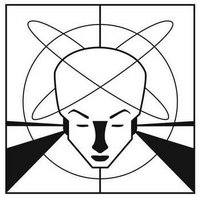Divination.
Divination (Greek μαντεια, from μαντις "seer", anglicized in the suffix -mancy, see also mania) is the attempt of ascertaining information by interpretation of omens or an alleged supernatural agency.
If a distinction is to be made between divination and fortune-telling, divination has a formal or ritual and often social character, usually in a religious context; while fortune-telling is a more everyday practice for personal purposes. Divination is often dismissed by skeptics, including the scientific community, as being mere superstition: in the 2nd century, Lucian devoted a witty essay to the career of a charlatan, Alexander the false prophet, trained by "one of those who advertise enchantments, miraculous incantations, charms for your love-affairs, visitations for your enemies, disclosures of buried treasure, and successions to estates" , though most Romans believed in dreams and charms. Advocates of divination will usually cite a mass of anecdotal evidence for the efficacy of divination.
Divination is a universal cultural phenomenon which anthropologists have observed as being present in many religions and cultures in all ages up to the present day.
Divination (Greek μαντεια, from μαντις "seer", anglicized in the suffix -mancy, see also mania) is the attempt of ascertaining information by interpretation of omens or an alleged supernatural agency.
If a distinction is to be made between divination and fortune-telling, divination has a formal or ritual and often social character, usually in a religious context; while fortune-telling is a more everyday practice for personal purposes. Divination is often dismissed by skeptics, including the scientific community, as being mere superstition: in the 2nd century, Lucian devoted a witty essay to the career of a charlatan, Alexander the false prophet, trained by "one of those who advertise enchantments, miraculous incantations, charms for your love-affairs, visitations for your enemies, disclosures of buried treasure, and successions to estates" , though most Romans believed in dreams and charms. Advocates of divination will usually cite a mass of anecdotal evidence for the efficacy of divination.
Divination is a universal cultural phenomenon which anthropologists have observed as being present in many religions and cultures in all ages up to the present day.

0 Comments:
Post a Comment
Psychologist